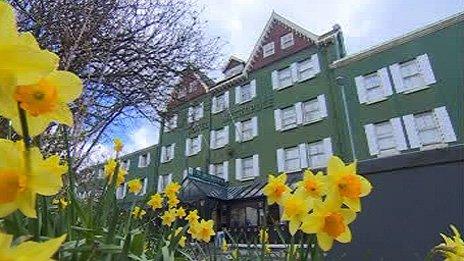Election 2016: Powys jobs hide bigger economic picture
- Published
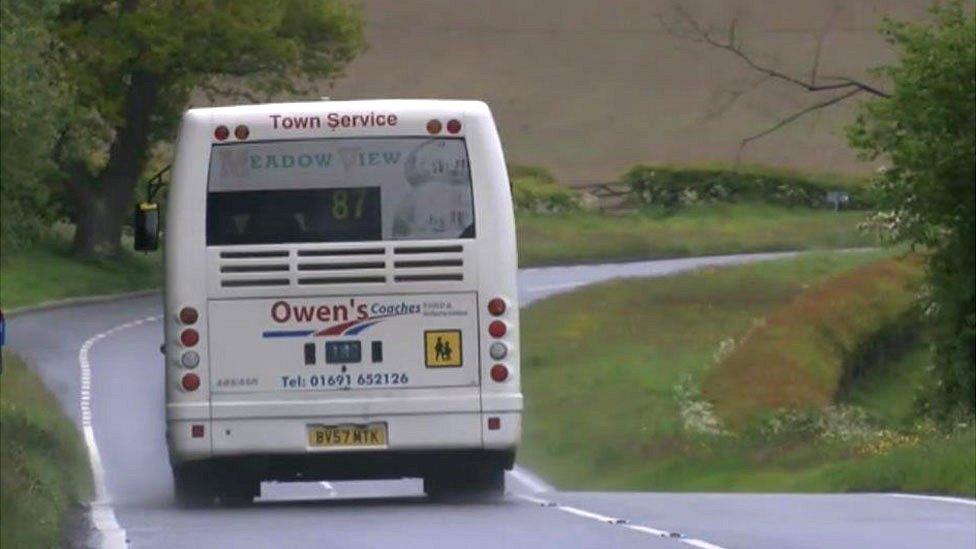
Powys is a county which covers a quarter of Wales but it is also the most sparsely populated; fewer people live here than the city of Newport.
Although unemployment is lower than the Wales average, it does not tell the whole story about its rural economy.
When you talk to people, it is not about the number of jobs available but what some of them pay.
There are also issues like public transport, which those living in urban areas can easily take for granted.
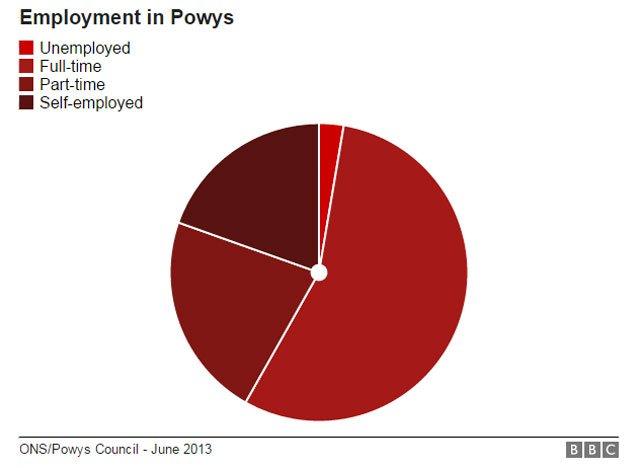
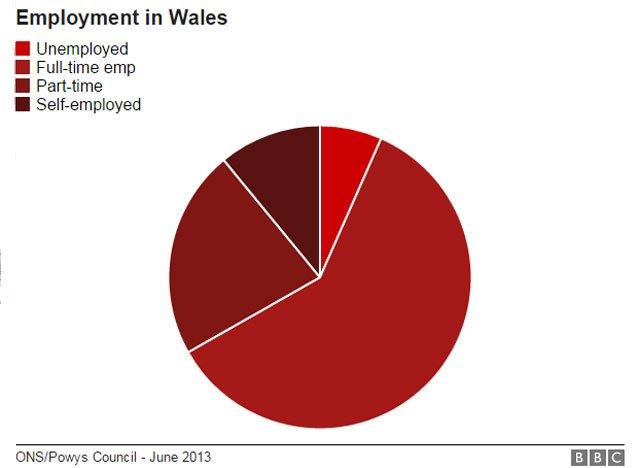
The charts above show the employment picture in Powys. A higher proportion of people are in jobs than the Welsh average and more are self-employed too.
But it is the types of jobs that are the key - and that includes more part-time workers.
Wages are also lower. The median gross weekly full-time wage in Powys was £414 in 2014; across Wales it was £473.
SMALL BUSINESSES BUT LOWER WAGES
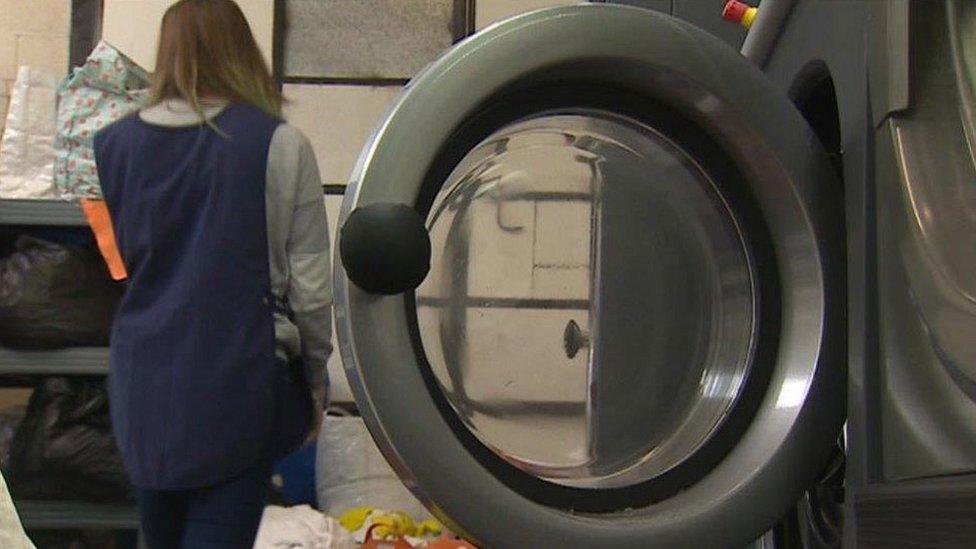
The old Lion works in Newtown used to make bikes after World War II but the shell of the old factory is now a maze of small businesses.
In Powys, nine out of 10 firms have fewer than nine workers.
Former cleaner Kim Gallagher started her laundry business Kim and Co in 2008 when she spotted a gap in the market to serve hotels, holiday lets and families. She employs five people - three part-time workers and two students on minimum wage.
Kim said of the business centre: "Behind all the doors you'll find a different business up and running; some are small, some are large. There are all sorts - one makes blinds, there's carpentry and joinery and plastic moulding.
"There's not really a lot of scope for more [than minimum wage] - a lot of people work for themselves or with a couple of people in the business.
"There are jobs out there if you want to find them - there's a KFC coming down the road, which brings job opportunities. A lot of the young girls are going into caring, I see a lot of that."
TRANSPORT ISSUES
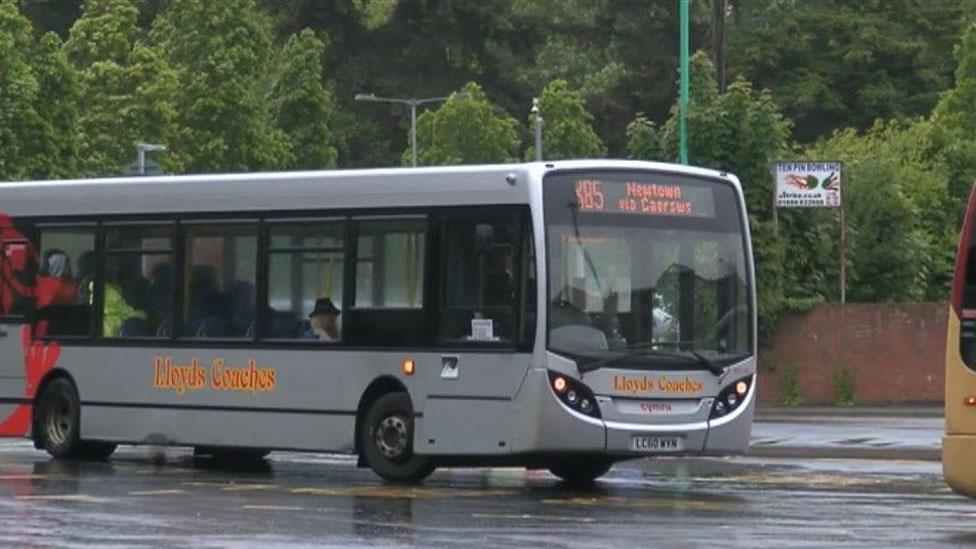
Nearly half of Powys residents live in a locality ranked among the 10% worst for access to transport in Wales
Lack of transport is a big issue in much of rural Wales.
Before Bea Lloyd moved into town she struggled to get to work in Newtown by bus from her home five miles away.
"It depends on the buses and how they go. Sometimes they don't turn up at all, it can be difficult. I was living in Abermule so it was a long walk if there was no bus or I couldn't get a lift, and that was an hour-and-a-half walk."
TOURISM AND FARMING
Tourism is important to rural Wales - cafes, restaurants and hotels employ around one in six people in Powys. Agriculture too is much more important here, making up 11% of the workforce, compared to the Welsh average of 2%.

MANIFESTO HEADLINES FROM THE PARTIES:
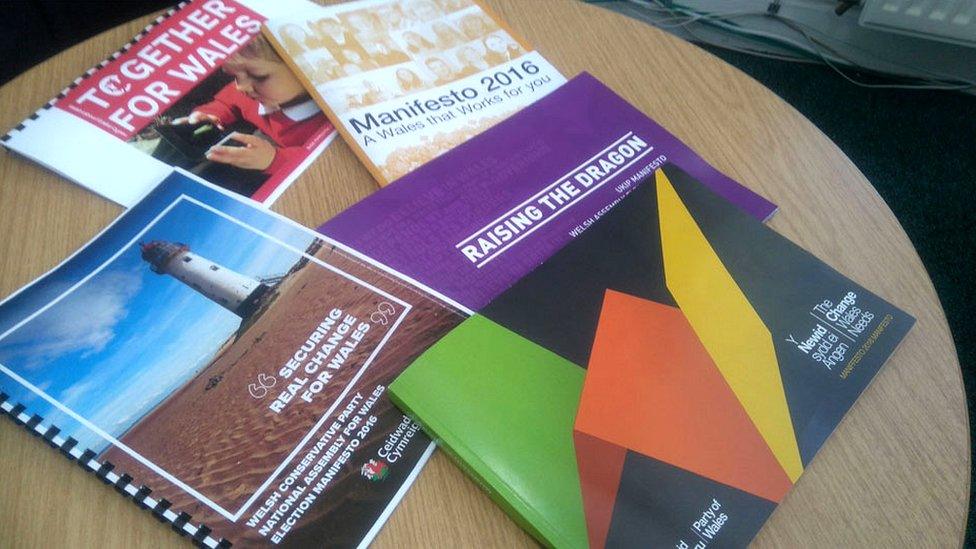
The Conservatives', external pledges include abolishing business rates for all small businesses; a new regional development bank; superfast broadband and mobile coverage across Wales by 2019; thousands of flexible apprenticeships; restore funding towards bus services to tackle rural isolation; develop dualling plans for the A40 to Fishguard and plans for a third Menai crossing. Support rural housing enablers.
The Green Party , externalwants to ensure rural areas have an access to services including post offices, public transport and high-speed broadband. Support for small and medium-sized enterprises; job creation from developing renewable technologies, together with housing investment.
Labour, external promises to promote the rural economies of mid and west Wales. It says the economic security of the farming and rural communities is dependent on EU membership, delivering a rural development plan, extending broadband coverage and seeking new markets for food and drink industries, including through procurement. It is also looking to cut tax to all small businesses and to create at least 100,000 all-age apprenticeships.
The Lib Dems , externalwant to boost number of rural apprenticeships, including in renewables, tourism and agriculture; it also pledges support for rural broadband, banks; assist "succession planning" in farming; a Welsh development bank to support business.
Plaid Cymru, external sees agricultural as "key component" of a more entrepreneurial economy and an increasingly localised food system. It wants a Welsh GVA (gross value added, external) growth rate of 3.5% a year; an increase in business rate relief and a "WDA (Welsh Development Agency) for the 21st century".
UKIP , externalwants improved links between rural Wales and its key hinterlands, whether in south Wales, north Wales, Ireland or English regions and ensure north Wales benefits from the Northern powerhouse; devolve economic development to local councils.

MANUFACTURING STILL IMPORTANT
Edd Rayner says he feels lucky there is a hi-tech firm on his doorstep in rural Wales
What is surprising is that manufacturing is as important to jobs here as for all of Wales. Those employed in manufacturing make up 11% of the workforce in Powys, exactly the same as the Wales average.
Amongst the hills and the sheep farms is a Welsh-owned company which exports to 80 countries across the world.
In 18 years, Invertek has gone from three local men in an old milking parlour to a firm employing 170 people in Welshpool with a turnover of £24 million.
Their electronic drives make motors more energy efficient and can be found in a host of different industries.
Edd Rayner, innovation projects manager, comes from a farming background and says he wants to see a "balanced economy".
"We don't want to forget our history but there are companies like Invertek showing it can be done and there's no reason we can't have big international companies doing really great things in mid Wales, in the rural economy.
"We need to make sure there are opportunities for those intelligent and knowledgeable people who come from the local area."
How do we help more Welsh firms develop into big players on a world stage?
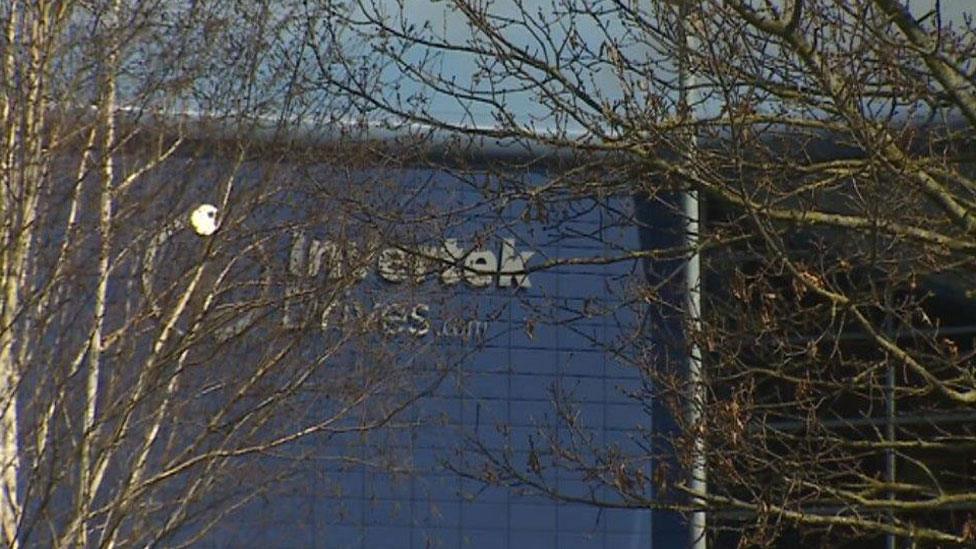
Invertek looks across the world for its business
Another farmer's son is Glyn Jones, one of the founders.
The company is about to open a factory in Shenyang in China.
"The biggest single thing we did was be outward looking," he said.
"I come from mid Wales and live in mid Wales - but we look out to the world, and export 90% of what we produce.
"The infrastructure's good - we're close to Manchester, Liverpool and Birmingham airports - and with the internet we're one click away from anywhere.
"It's confidence to use the skills here of local people, there's no reason why others can't follow what we've done. It might look complex from outside what we do but it's electronic Lego."
He regrets the passing of the Welsh Development Agency, which had been a "good, outward looking organisation" but said the Welsh Government was providing generous assistance to let them expand the factory.
Technician Daniel Evans says apprenticeships are an important issue
RAISING THE VALUE OF WHAT WE DO
The advantage to the Welsh economy of firms like this is they tend to pay higher wages, that get spent locally.
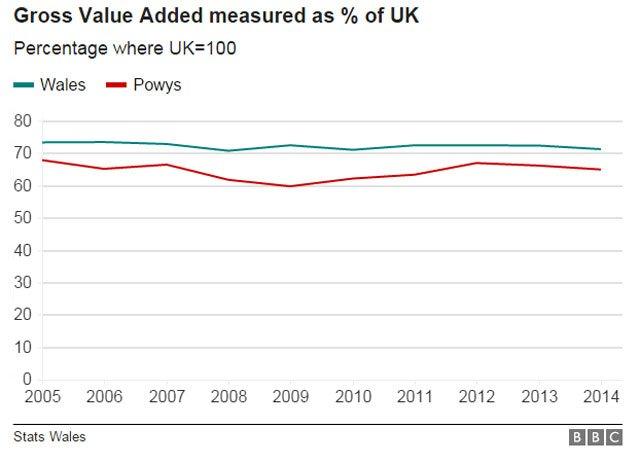
More of the better paid jobs will help raise the GVA of Powys - that is the gross value added to the local economy.
Powys had 65.1% of UK average GVA per head in 2014, lower than the Wales figure - 71.4%.
Invertek technician Daniel Evans told me he was happy with the money he got and said his friends were all in work.
Colleague Alison Jones said there was plenty of work in the area but not all of it was well paid.
"Higher paid jobs would keep younger people in the area," she said.
"Cheaper housing is also what they need. It's difficult to buy a house around here for the youngsters."
And that is the challenge. The more better paid workers there are in the community, the more high spenders, the better it is for a range of local business and the economy.
- Published28 October 2015
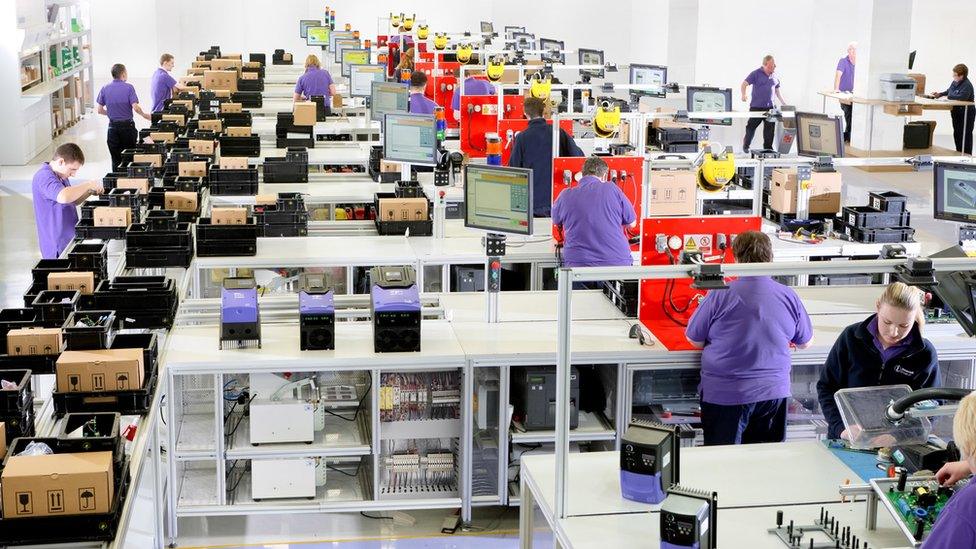
- Published25 April 2013
